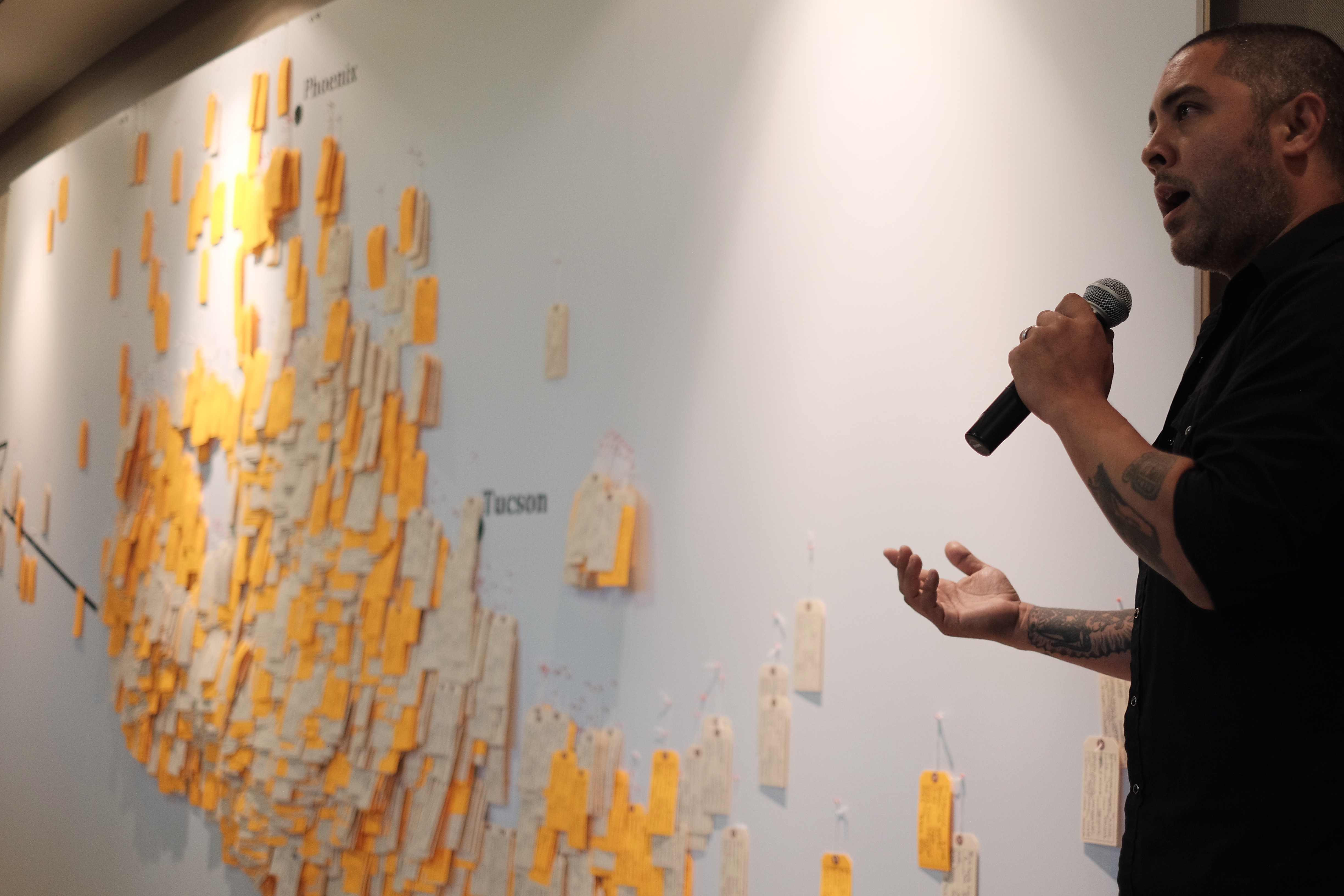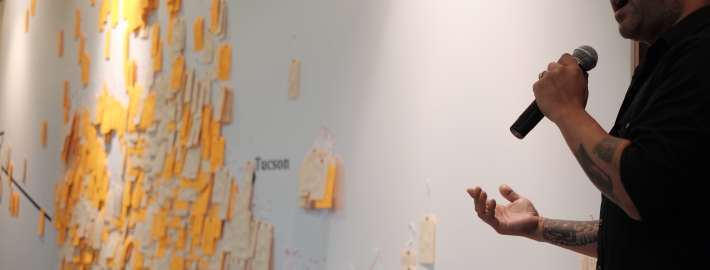Second annual cohort of Chancellor’s Award for Community-Engaged Research to incorporate social justice into undergraduate courses

Professor Jason De León, one of five 2020-21 recipients of the Chancellor’s Community-Engaged Research Award. (Photo Credit: UCLA)
UCLA undergraduates will soon have the opportunity to gather primary source documents about California Indian dance, interview migrants at the U.S.-Mexico border, study emerging online platforms for community organizing, and other community research-based subjects.
Five faculty have been chosen to receive the second annual Chancellor’s Award for Community-Engaged Research. The five $10,000 research grants, offered by the UCLA Center for Community Learning and the Chancellor’s office, will support the faculty in developing courses that will engage students in research projects in conjunction with community partners.
In each course, students will carry out research activities in partnership with local community organizations. The course will advance their professor’s research goals and also benefit the communities that the partners serve.
Over the next academic year, the five faculty will participate in a workshop on best practices for teaching undergraduate community-engaged research and attend quarterly meetings to advance their course design. By the end of spring 2021, each faculty will have a new course syllabus, ready to be offered to undergraduates in 2021-22 or 2022-23.
Shalom Staub, director of the UCLA Center for Community Learning, said that the faculty selected for this year’s award will employ anti-racist and decolonial methodologies to tackle critical issues.
“The five award recipients embody the highest standards of scholarship combined with a deep commitment to racial, economic, and gender justice,” Staub said. “Through the new courses emerging from these awards, undergraduates will have the opportunity to learn community-engaged research methodology, contribute to their faculty’s ongoing research, and produce work of value to community partner organizations.”
Though the course topics vary widely, each one places an emphasis on studying the act of community engagement in itself: How can academic institutions and researchers remain respectful, ethical and collaborative when working with the communities they are studying?
Tria Blu Wakpa, professor of world arts and cultures/dance, will develop a course called “The Politics and Possibilities of California Indian Dance.” Students will gather primary and secondary documents about and related to California Indian dances and write annotated bibliographies. They will share all of this information with California Indian representatives of the Tongva, Chumash, Ohlone, and Winnemem Wintu nations, who will draw on these texts to revitalize and innovate their dances.
“The course will show that collaborating and consulting with Native peoples when writing about their dances is vital given the problematic relationships between universities and Indigenous peoples, tribally-specific contexts and understandings that undergird Native dances, and Indigenous protocols around what information is appropriate to share,” Blu Wakpa said.
Another course, “Community-Engaged Approaches to Environmental Toxicants, Chronic Illness, and Gender,” will introduce students to the UCLA Center for the Study of Women’s Oral Histories of Environmental Illness Archive, which has recorded interviews with women who have experienced illness as a result of chemicals and environmental toxins (in beauty products and while working in nail salons, for example).
Rachel Lee, professor in the departments of English, gender studies and the UCLA Institute of Society and Genetics, will teach the course. She wants students to investigate and make contact with community organizations that could benefit the individuals in the oral history archive, enabling the students to learn from them about advocacy and activism.
“It’s always striking to me how much knowledge is had by the organizers. They are the teachers here,” Lee said.
Jason de Leon, professor of anthropology and Chicana/Chicano studies, said community-engaged coursework can show students that they are capable of doing fieldwork and taking ownership of research projects.
“There is no substitute for hands-on learning,” de Leon said. “There’s a transformation that happens when you put people into a situation where they’re no longer passive learners, and they’re put into the driver’s seat to do the work.”
In De Leon’s course, students will interview and conduct focus groups with migrants who have been held in federal detention centers at the U.S./Mexico border, as well as people who have worked in the detention centers or live in the cities where the centers are located. Their work will be incorporated into an art exhibition called Hostile Terrain 94, part of the Undocumented Migration Project.
“We really hope that we can develop a rich collaboration with the communities, to feel like they are really collaborating with us,” he said. “What can we do in the community to help?”
Rounding out the 2020 cohort is Jennifer Chun, department of Asian American studies, and Gaye Theresa Johnson, Chicano/Chicana studies and African American studies. In conjunction with the Asian Pacific Islander American Leadership Development Project, Chun’s course will instruct students on developing relationships and practices of accountability, transparency, and reciprocity in the writing of organizational case studies and movement histories.
Johnson’s course will assign students to different local social welfare organizations such as Hunger Action LA to complete a project for that organization, while studying the intersecting social justice issues that determine the organization’s central organizing principles.
“In these tumultuous times, it is more important than ever for students to be actively engaged in the world around them,” Chancellor Gene Block said. “The Chancellor’s Award for Community-Engaged Research recognizes and supports those faculty who are providing exceptional undergraduate learning opportunities, empowering students to conduct research that will benefit the community and amplify voices that are often silenced. I look forward to seeing the positive impact the courses will have on both the Bruins who take part and the communities they will serve.”




